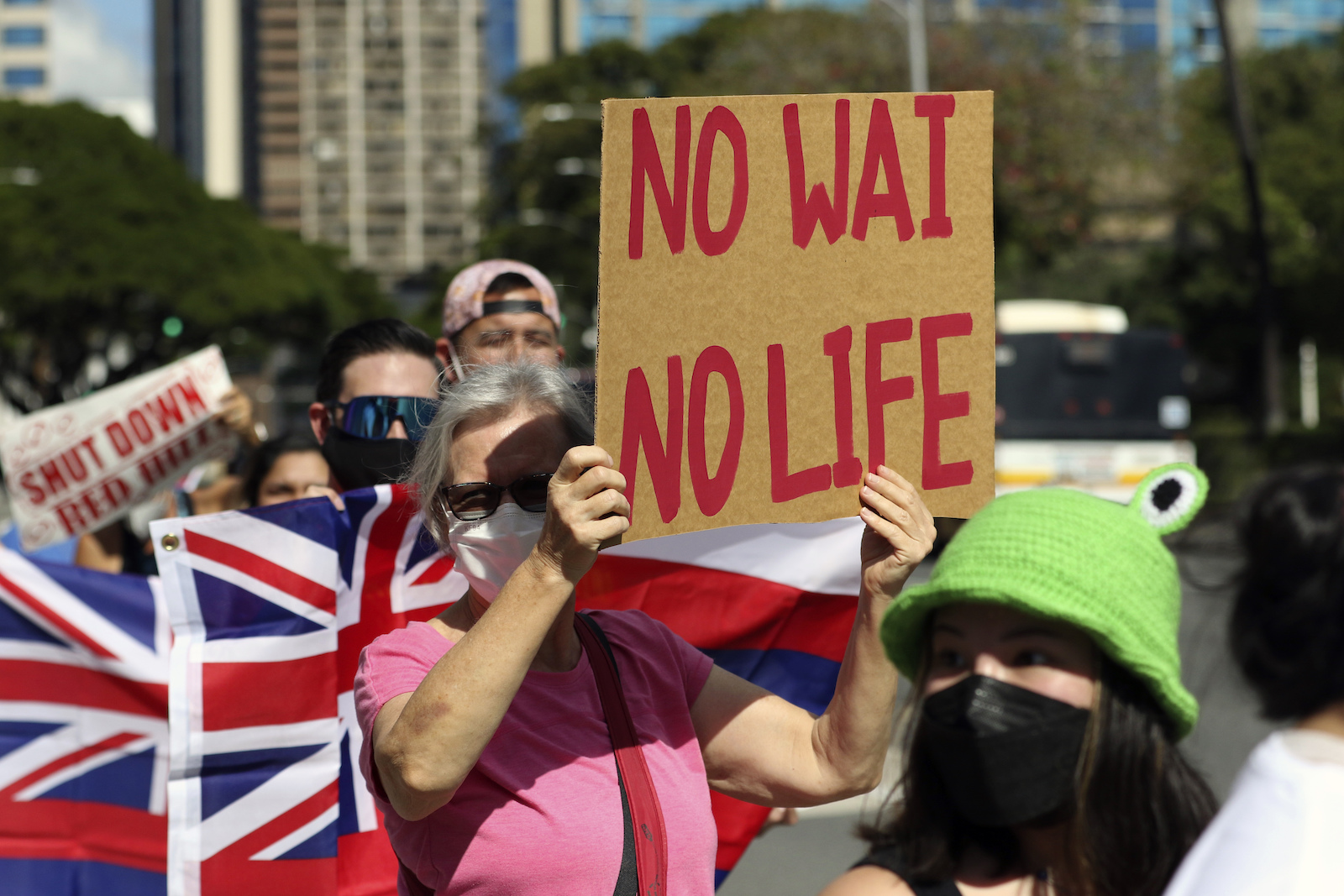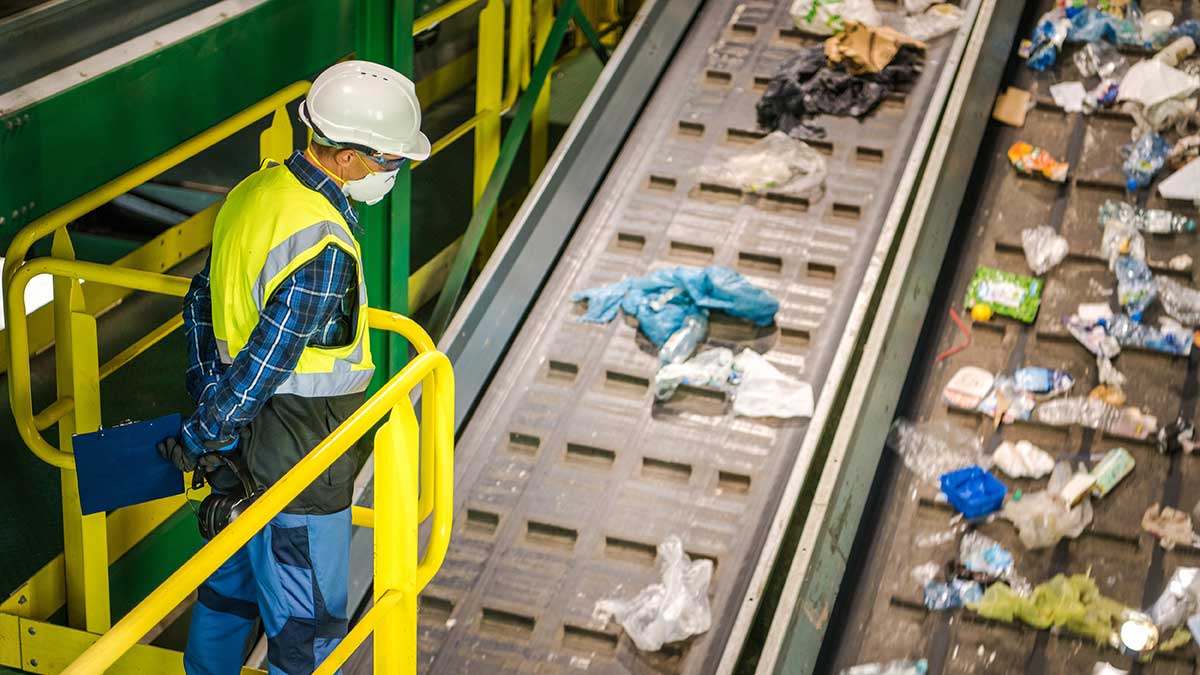Olivia Colton was always interested in the natural sciences. But before starting the Master of Science in Sustainability Science (SUSCI) program, she was an active-duty officer in the U.S. Army stationed in Wiesbaden, Germany, and Monterey, California, where she served as a platoon leader and executive officer.
Paging through a military magazine in a waiting room one day, Colton came across an article referencing low veteran enrollment at Ivy League universities—a detail that stayed in the back of her mind. A few months later, when she was completing her military service and looking for sustainability master’s programs, Colton felt encoragued to apply to Columbia’s SUSCI program.
Carrying her leadership skills into her new environment, Colton has been involved with student life in the Academic Affairs Office for the Sustainability Graduate Programs, the Sustainability Science program as an Earth Institute Fellow, and as a School of Professional Studies student government representative at Columbia. Last summer, she also worked at the Tree Ring Lab at the Lamont-Doherty Earth Observatory, where she helped catalog nearly 2,000 cross-section tree samples from field studies across the globe.
After graduating, Colton plans to pursue a research career in environmental conservation. In the Q&A below, she reflects on the SUSCI program’s interdisciplinary coursework, and how her time in the military and at Columbia has prepared her to work on a range of sustainability initiatives.
Your undergraduate degree is in conservation biology. What first sparked your interest in natural sciences?
I guess I have never given it that much thought; it’s just always been part of who I am. For as long as I can remember, birthdays were spent at the zoo, and family vacations involved a lot of hiking. I think it probably comes from the feeling of wonder I experience when I’m in nature! Our world doesn’t have magic or anything like that, but nature often feels like the closest thing to it.
What did your research at the Tree Ring Lab focus on? What were some challenges you experienced?
Last summer, I analyzed field samples from across the globe, all destined for meticulous cataloging and organization. There are thousands of unsorted samples in the Tree Ring Lab from six continents, so most days in the lab were consumed by intricate comparisons and cross-referencing to ensure that each sample was accurately labeled and sorted.
The work also included sorting the metadata for each of those samples via System for Earth Sample Registration and using that to allocate each one to a unique identifier known as an International Generic Sample Number.
As for challenges, on my last day in the lab, we opened up a box of untranslated samples collected in Egypt in the 1980s. We had sorted more than a thousand samples by this point, and this was the first group of untranslated samples that we came across. As luck would have it, my seven semesters of Arabic from my undergraduate days proved to be a lifesaver. Unfortunately, I haven’t used it much in the last five years, and Egyptian Arabic is notoriously unique, so it took me several hours to translate and decipher. It certainly added a thrilling finale to my summer in the lab.
Could you elaborate on your experience of joining the Army after your undergraduate degree, and what compelled you to continue your education after leaving the Army?
I was a member of the Army Reserve Officers’ Training Corps during my undergraduate study. They gave me a full-ride scholarship, and then after graduation, I owed them [at least] four years of service. I started active duty about a week after graduation from Louisiana State University and actually completed it during my first semester here!
I knew I eventually wanted to pursue a master’s degree, but I had at least four years of service before I would reach that point. As I was preparing to end my time in service, I knew that if I did not go back to school right then, there was a much lower chance that I ever would. Leaving the military was a big transition, and bundling it with a big move, but starting school felt more manageable, somehow.
How did you find out about the SUSCI program, and what inspired you to apply?
I have a distinct memory of picking up a military magazine in a waiting room and reading an article about a veteran who went to Yale. The article mentioned the low veteran enrollment at Ivy League universities (although Columbia has more than the other Ivy Leagues combined). I found it interesting but did not think it would ever really apply to me.
Fast-forward a few months; I came across Columbia when I was googling schools with master’s programs in sustainability. I kept a handwritten list of schools I was interested in and their locations. I still have that notebook somewhere, and I’m pretty sure I have Columbia circled with “LOL” because I thought there was no chance I would get in… but here I am!
You’re very involved with student life. What positions do you hold, and what have you learned from the experience?
I am currently the Sustainability Science representative for student government and serve on our social committee. I am also a member of Columbia MilVets. My biggest takeaway from it is the importance of being involved. These events are happening because people want to see YOU there!
As an intern for the Academic Affairs Office, what does it mean for you to engage with prospective applicants to the SUSCI program?
It’s a lot of fun! These days, I have classes with students who I reached out to and answered questions for as they applied, and then sent packages to them when they were accepted. It’s fun to see their full progression! I feel like I contributed to their journey, even just a little.
Having so many unique positions at Columbia simultaneously is not an easy feat. How do you balance your time?
That is a great question, and unfortunately, I’m not sure I really have an answer. Having prior stressful job experiences definitely helps. I guess this goes along with my passion for the natural world, but I just find very little joy in sitting at home. While not exactly an environmental haven, that’s part of the reason I love NYC so much—there’s always something to do!
Do you have any advice you’d like to share with current or prospective students?
My main piece of advice would be to get involved! If you’re not involved on campus, there is still so much you can do in our city! If you’re going to make this much of an investment for tuition and rent, you need to get the most out of it.
My second would be to make sure you take classes you’re interested in and explore options outside of our department. I wish I had shopped around a little more during my first semester!
The Master of Science in Sustainability Science program, offered by the School of Professional Studies in partnership with the Climate School, is designed for current and aspiring leaders who wish to help organizations understand the technical aspects of sustainability, including predicting and addressing environmental impacts.




